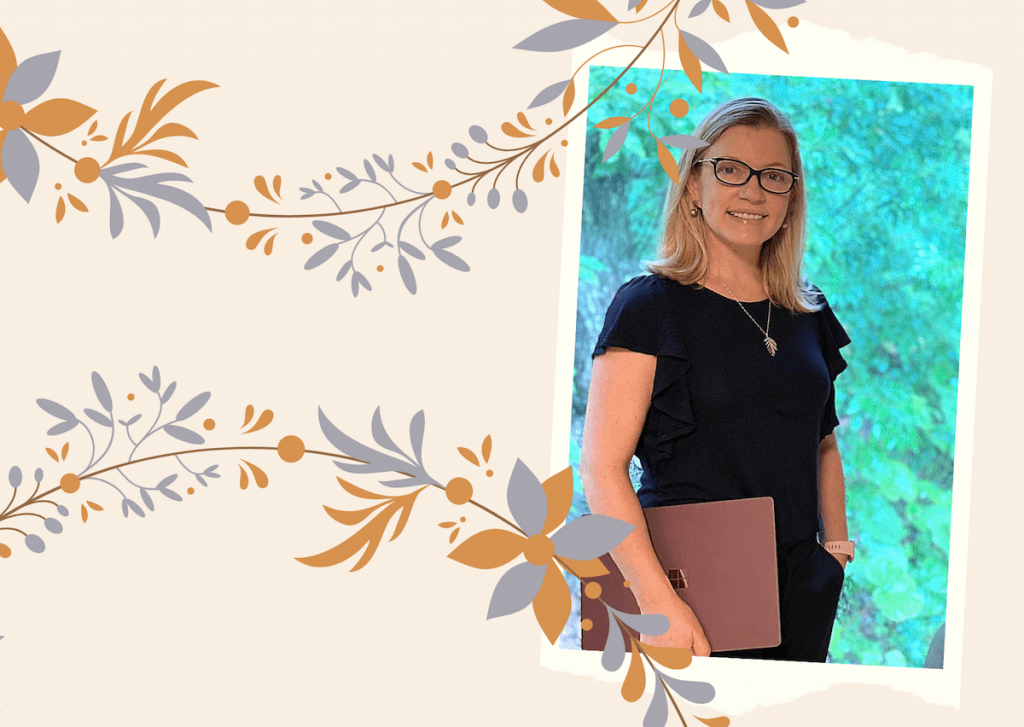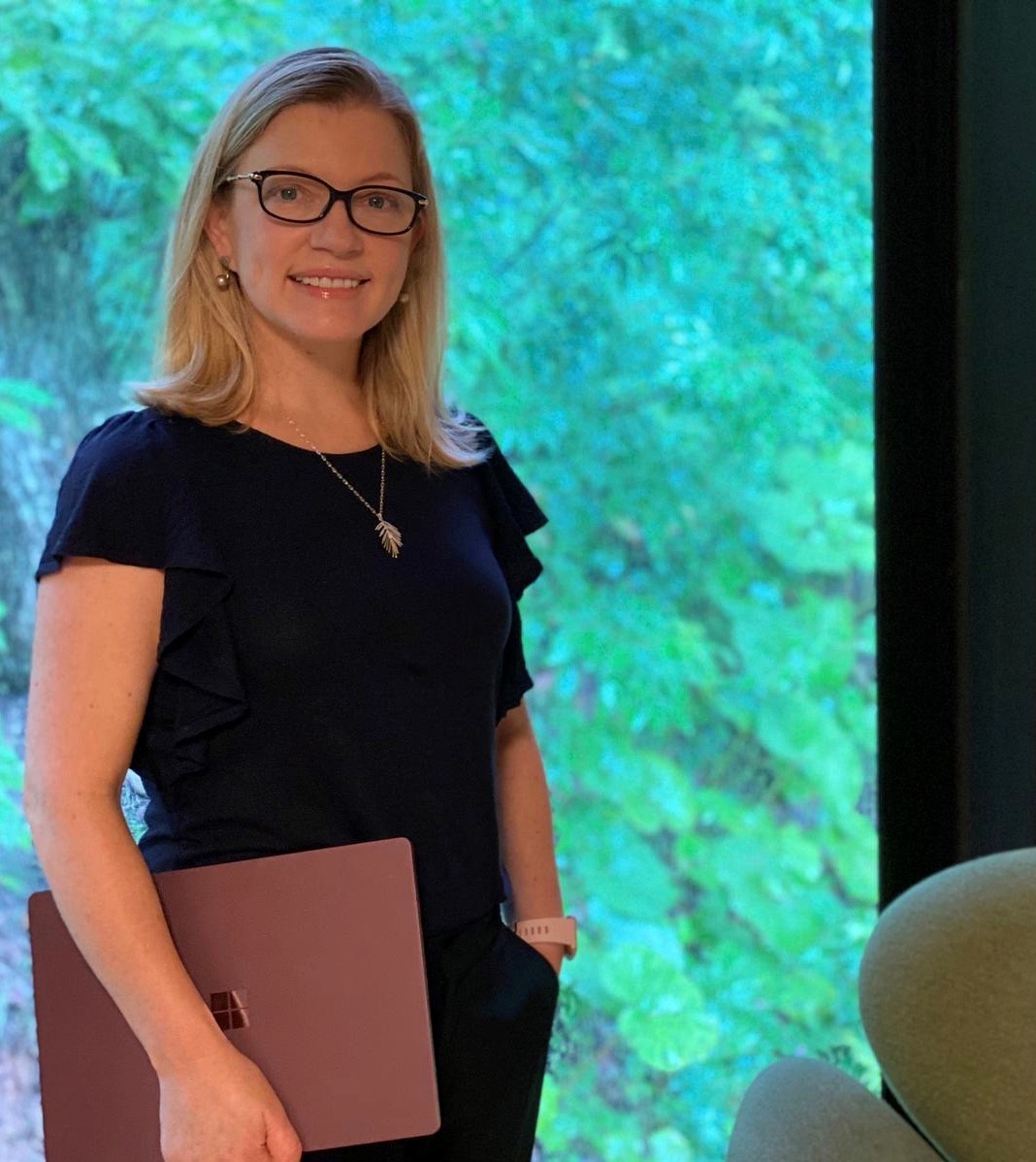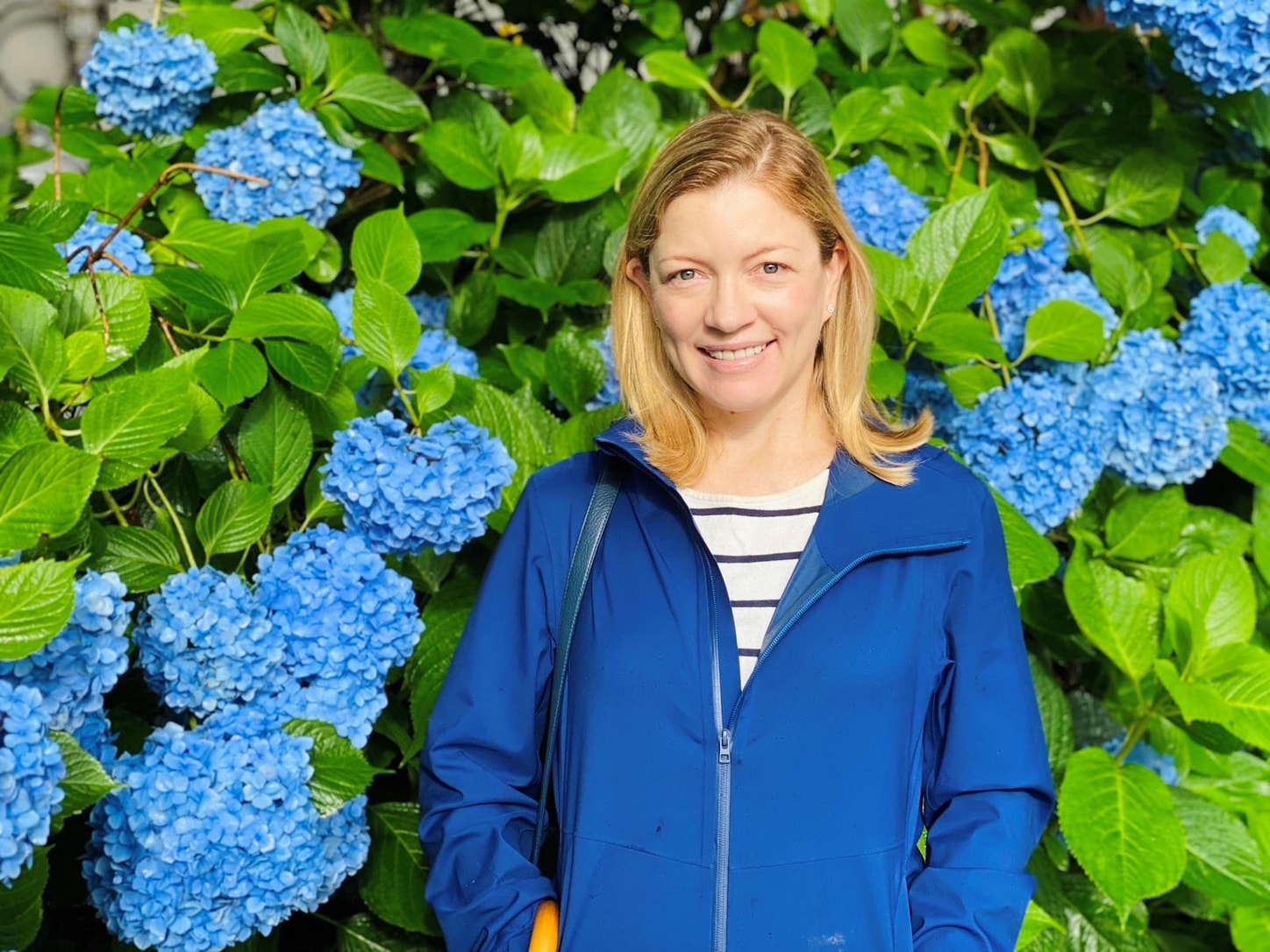Leisa Nagy has worked in human resources in Japan for almost two decades and is currently an HR executive at an international financial services firm. As a mother of two, she has used active decision-making to manage family life while pursuing her own goals successfully. Through lowlights like the Lehman Brothers collapse and highlights like acting as a mentor for the Cherie Blair Foundation, Leisa has stayed focused on her priorities. She is hoping that the changes Covid-19 has brought to the Japanese work environment will diversify its priorities.
1. Please tell us about yourself.
I’m part of an international family — I’m Australian, my husband is Canadian and our children were born and raised in Japan. My career in human resources has spanned a number of sectors, including education, technology and financial services. Aside from work and family commitments, I’m an avid cook and a big consumer of podcasts. Last year I commenced graduate studies in psychology – all of that keeps me sufficiently busy.
2. When and how did your relationship with Japan begin?
I originally came for a year on a work contract and, like so many others, was drawn to Japan’s uniqueness. There are many facets to explore and fall in love with: the culture, history, nature and the urban energy of Tokyo. Along the way, my own family came into being and while my roots are very much with my home country, Japan has enriched my life and holds a very dear place in my heart.
“Balancing all my commitments requires constant decision-making on what I need to lean into, at any given moment.”
3. You have worked in human resources for about 18 years. What is the appeal of HR?
During my MBA studies, I was drawn to the optional courses on international human resource management. I found my engagement and interest was at its peak when aspects of business and people in organizations intersect, and that’s still the case for me today.
4. You were working at Lehman Brothers in Tokyo when the fourth-largest US investment bank collapsed, setting off the Global Financial Crisis. Are there any memories of that time that you care to share?
I had been an employee of Lehman Brothers for many years before the GFC so on a professional level, it was very challenging to be a frontline witness to the events as they unfolded. In hindsight, it was a very practical lesson in change management. At home, I had a toddler with number two on the way and my husband was in his final months of completing a PhD at Waseda University. Lots of personal grit and resilience got us through those very difficult months.
5. You have two sons in secondary school and have worked full time for almost all your time as a mother. What challenges have you faced in doing that? Do you have any advice to make that easier?
I find that balancing all my commitments requires constant decision-making on what I need to lean into, at any given moment. I can’t be everything to everyone all the time. But I can give something 100% focus if I’ve made an active choice on what to prioritize. It’s also about having shared priorities and a great partnership with your spouse. Together, we get through each week with positivity and a few laughs.
6. Have you been able to initiate changes to improve women’s participation in the workforce, and related issues, like childcare?
Improving women’s participation in the workforce cannot be achieved by corporations alone. Macro aspects such as social infrastructure, cultural expectations on ways of working, visible role models and male advocates in the public domain are all critical enablers. Within organizations, the value proposition offered to employees in the form of policies, benefits and professional development opportunities need to be inclusive and flexible enough to cater to the workforce’s demographics.
7. For seven years now, Prime Minister Abe has been talking about creating a society where women can “shine.” Have you seen any progress?
I think there has been progress on a number of levels; clear targets have been set vis-à-vis representation of women in management or executive-level positions, efforts towards the revision of labor practices via work-style reform (“hatarakikata kaikaku”) are underway and public discussion on the social structure, which asymmetrically affects women, is taking place. Ultimately, to empower all citizens, not just women, there needs to be more synergy between rhetoric, policy-making and the practical application of such policies and more grassroots-driven impetus to propel women into the workforce.
8. Internationalization is also supposed to be happening in Japanese business. How does that look from an HR perspective?
To be successful, internationalization goals need to be applied more broadly than in Japanese businesses and I’ve seen some great examples at a community level. For example, the kendo dojo where my sons have been practicing for the past seven years is very welcoming of players from all countries. That said, at a business level, my experience is that multinational corporations are more agile in diversifying not only their workforce but also their ways of working. I hope that the Covid-19 telework experience can help influence a move to more digitized ways of working (e-hanko!) and re-shape mindsets on presenteeism and how performance is evaluated in the more local sectors.
“There is an abundance of ways for me to keep learning and growing in Japan.”
9. You act as a mentor for the Cherie Blair Foundation. Can you tell us about that?
The foundation provides a platform to connect experienced professionals with women in developing countries who need expertise, access to certain skills or general guidance in developing their careers or their businesses. So far, I’ve had the privilege of being involved in two-year-long mentoring relationships with women from India and Pakistan and I’ve learned as much from them as I hope they learned from me.
10. What keeps you in Japan?
This summer, our overseas travel plans were thwarted by Covid-19 and we’ve had a chance to explore parts of rural Japan around Nagano and nearby prefectures. It’s reminded me of all the things that piqued my interest years ago and has renewed my enthusiasm for life beyond the urban hustle of Tokyo. Ultimately, there is an abundance of ways for me to keep learning and growing in Japan.
Have a person in mind you’d like to recommend for our next “10 Questions With” feature? Let us know in the comments or send us an email at [email protected]










